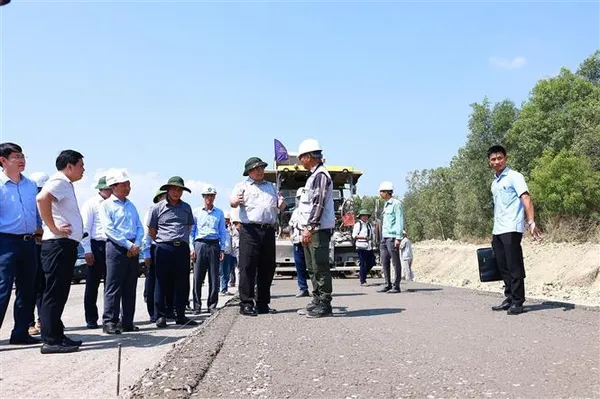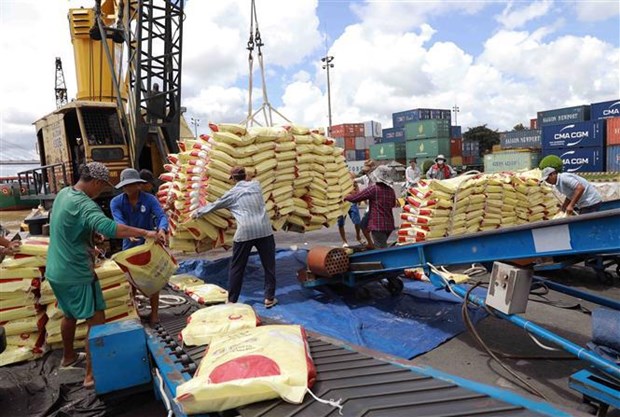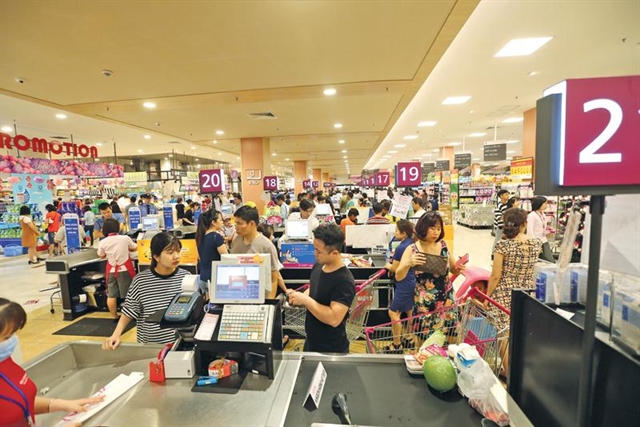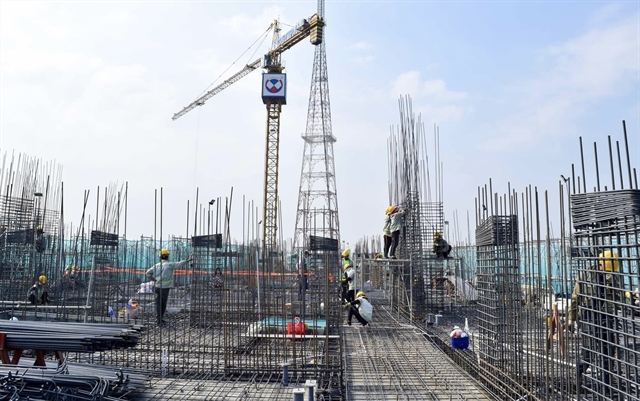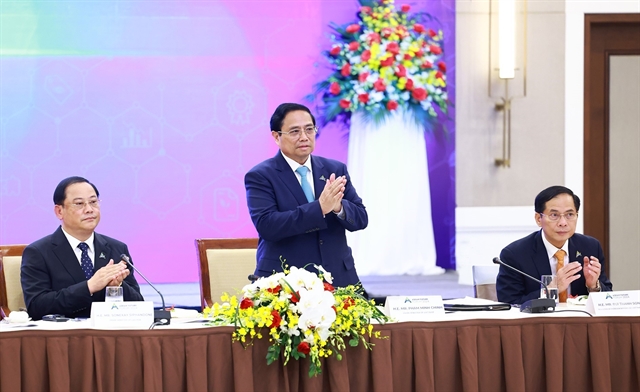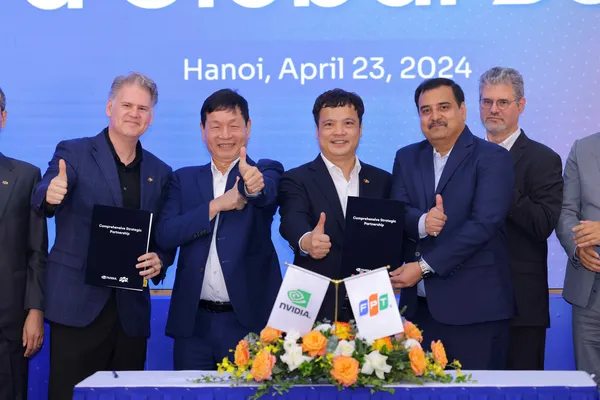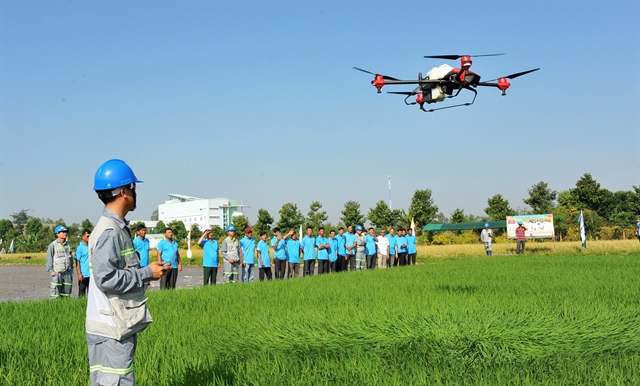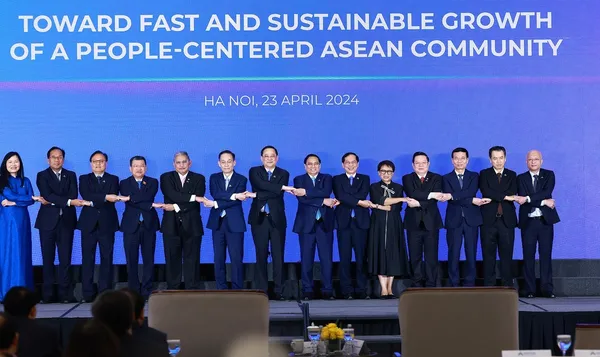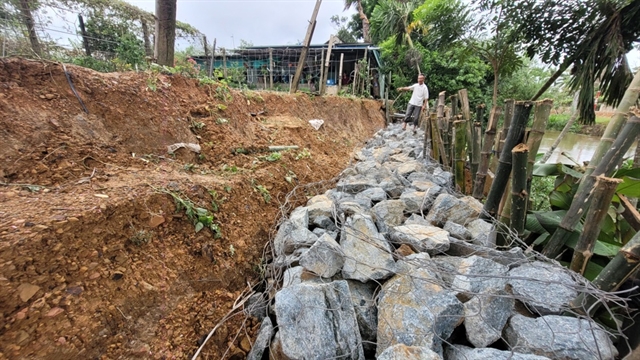 Environment
Environment
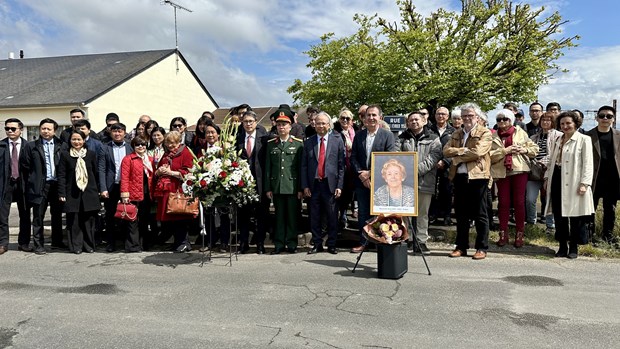
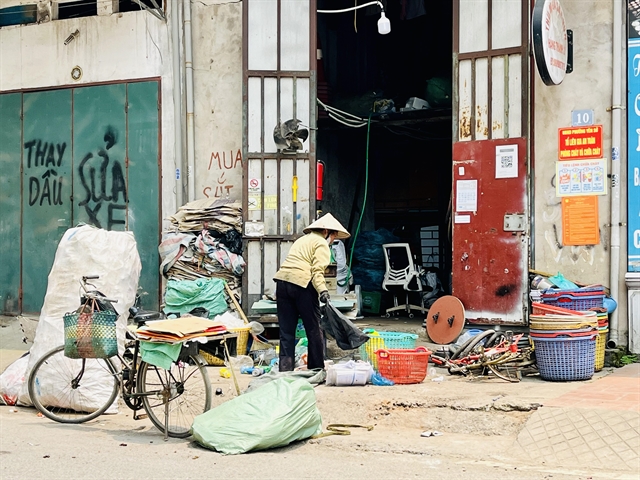
|
| A female informal waste worker at a scrap collection shop in Yên Sờ Ward, Hoàng Mai District, Hà Nội.— VNS Photo Nguyễn Hằng |
By Nguyễn Hằng
HÀ NỘI — If you walk around the capital city it won’t be long before you hear somebody shout: “Anyone selling scrap?”
The question may well be coming from the mouth of Nguyễn Thị Luận, 59, from the northern province of Nam Định.
For 20 years she has trawled the streets of the capital collecting metal, beer cans, bottles, in fact anything she might be able to sell on.
"This job is tough and the income is not much,” she admitted.
“Some days you earn more, some days less.”
With limited job opportunities in her home town, Luận moved to the capital to seek employment.
Some days, she only makes around VNĐ30,000 (US$1.2). When things are better it may be $2, or on a good day, $4.
Đỗ Thị Thảo, 53, from the northern province of Hải Dương, has been doing the same job for the past 10 years.
"In my countryside, my family has a rice field to cultivate, but it is not enough to sustain us, so I came here with the hope to earn more to raise my children," she said.
Rain or shine, she still had to ride her old bicycle through Hoàng Mai District, Hà Nội to collect scrap every day.
“If I do not work, I will not have enough money to cover rent-room expenses, food, electricity, and water bills, among other expenses,” she said.
Thảo said she makes around VNĐ3,000 (12 cents) per kilo of paper, VNĐ400 (1.5 cent) for a beer can, VNĐ4,000 (16 cents) per kilo of plastic used bottles, VNĐ2,500 (10 cents) per kilo of used cardboard, VNĐ30,000 ($1.2) per kilo of aluminium and VNĐ7,000 (28 cents) per kilo of iron.
Copper fetches the highest price at VNĐ160,000 ($6.4) per kilo.
Normally, she had to collect two sacks of used plastic bottles to earn VNĐ4,000, she said.
Luận and Thảo are among nearly three million workers involved in informal waste collection in Việt Nam.
Crucial role in EPR implementation
According to the Circulate Initiative, globally, about 60 per cent of plastic waste is collected and recycled thanks to 20 million informal waste workers, often the most vulnerable and marginalised groups in society.
In Việt Nam, the informal waste workers, where up to 90 per cent are women, help collect more than 30 per cent of recyclable plastic waste, reducing the financial burden on formal waste collection units and, ultimately, reducing public spending on waste collection and treatment.
In the meantime, Extended Producer Responsibility (EPR) is an advanced policy approach that holds producers accountable for the entire lifecycle of their products, including post-consumer waste management. This approach shifts the burden of waste management from local governments to producers and importers and encourages sustainable waste management practices.
Việt Nam's Law on Environmental Protection 2020 regulates that starting from 2024, manufacturers and importers are obliged to implement EPR.
With the goal of refining waste management regulations towards considering waste and plastic waste as resources, the law has introduced the EPR provisions with two responsibilities. The one is waste collection and disposal, the other is recycling of packaging, products of manufacturers and importers.
Since January 1, 2024, manufacturers and importers of batteries, accumulators, lubricants, tire inner tubes and packaging (commercial products) must take responsibility for recycling the products and packaging they produce or import after consumers dispose of them.
Ramla Khalidi, UNDP Resident Representative in Việt Nam, said: “As in other countries, informal waste workers play a crucial role in the EPR implementation process in Việt Nam.”
Their contributions were significant in waste collection and sorting, ensuring a stable supply of recyclables essential for the success of EPR.
By leveraging their mobility, flexibility and personal networks, they collected and sorted materials from diverse sources, complementing formal waste collection services.
“Their involvement in primary waste sorting and pre-processing maximises recycling efficiency and waste recovery efforts,” Ramla added.
That directly benefited the recycling industry by providing a steady supply of raw materials and supports circular economy practices.
“Empowering informal waste workers to utilise their strengths in waste collection and integrating them as essential contributors to the recycled plastics value chain is crucial for effective implementation of EPR in Việt Nam,” she said.
However, to harness these benefits, it is important to consider inclusive practices that provide equitable opportunities for all parties involved, especially women and marginalised groups who dominate the informal waste sector.
How to engage
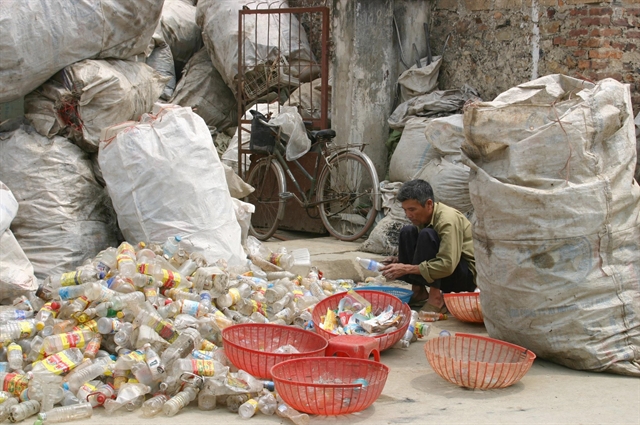
|
| A man prepares used plastic bottles for recycling at Tràng Minh Scrap Recycling Village, in Tràng Minh Ward, Kiến An District, Hải Phòng City. — VNS Photo Trương Vị |
She suggested that to engage informal waste workers in the activities of licensed recycling companies under EPR regulations, there were a number of strategies.
In terms of legal identity and collective representation, providing informal waste workers with legal status by connecting them to formal networks like professional groups, associations, or unions was crucial. The approach enhanced their market position and facilitated their involvement in EPR systems.
Establishing cooperatives and associations, with the backing of NGOs and businesses, allowed informal waste workers to sell materials at better prices. Such entities could also align with broader organisations, promoting sustainable development and improving waste collection efficiency.
Upcoming policies supporting cooperative establishment would further ease the inclusion of independent waste pickers in the EPR process.
In terms of financial incentives, implementing subsidies from the Environmental Protection Fund for collecting low-value plastics could address the issue of plastic pollution by making the collection of such materials more economically viable for informal waste workers.
“The initiative not only increases their income but also encourages the collection of materials that are often neglected due to their low value,” she said.
Ensuring a steady supply of plastic waste to recycling companies, these subsidies aligned with EPR regulations and supported sustainable waste management practices.
In terms of inclusion and recognition, strengthening the involvement of businesses and brands in incorporating informal waste workers into their material value chains was essential.
Enhancing communication about the role of informal waste workers in EPR and aligning this with corporate social responsibility ensured that companies prioritised the welfare of informal waste workers when meeting recycling obligations.
Collaborations between UNDP Việt Nam, NGOs, and businesses to pilot a Responsible Sourcing Framework (RSF) were steps toward integrating sustainable practices into EPR guidelines, promoting a circular economy.
"Once the informal waste workers are recognised as a legitimate stakeholder, there are opportunities for them to be included in the EPR implementation in the country, for example, they can sign contracts with cooperative models, recycling facilities to collect different types of materials under the EPR’s requirements," she said.— VNS


